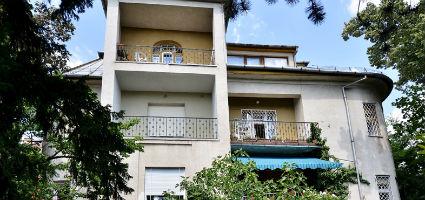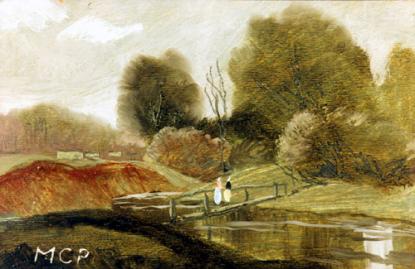2024. November 21. Thursday
Pál Molnár C. Studio Museum - Budapest
 |
Address: 1118, Budapest Ménesi út 65.
Phone number: (30) 201-1073, (30) 303-7518
E-mail: info@mcpmuzeum.hu
Opening hours: Thu-Sat 10-18
|
Museum tickets, service costs:
|
Ticket for adults
|
1000 HUF
|
|
|
Individual ticket for students
|
500 HUF
|
|
|
Individual ticket for pensioners
|
500 HUF
|
The art of Pál Molnár C. was greatly affected by Italian art. Even though he tried all new trends since he was a playful person, every new isms and schools excited his phantasm. Sill, Italian Renaissance and experience of three years formed his individual style.

Another heavy influence can be traced back to the times he spent in Rome. His art is the representation of a surreal, supernatural. He was a pioneer of surrealism, just as Szinyei was of impressionism. When later he saw Dali's pictures, he felt that somebody had taken his dreams.
From the thirties he was commissioned to do a number of works related to the history of church. He was especially attracted to the purity of the Madonna, the shining beauty of women. His next favourite topic was Saint Francisco when painting him preaching to birds or when he tamed the wolf of Gubbo or when he illustrated the flowers of life of the saint. In 1929 he was given gold medal in Monza for his wood cut.
He did everything related to fine art. He worked as a costume designer for the National Theatre, he did drawings, wood cuts, experimented with paints, even wrote a study on 'Painting Techniques'. The manuscript sill awaits publication.
The apex of his oeuvre is the fine self portrait entitled 'The Painter, the Land and the Picture'. He harmonizes his portrait with the northern Italian hills and the frame of a not-existing picture.

Another heavy influence can be traced back to the times he spent in Rome. His art is the representation of a surreal, supernatural. He was a pioneer of surrealism, just as Szinyei was of impressionism. When later he saw Dali's pictures, he felt that somebody had taken his dreams.
From the thirties he was commissioned to do a number of works related to the history of church. He was especially attracted to the purity of the Madonna, the shining beauty of women. His next favourite topic was Saint Francisco when painting him preaching to birds or when he tamed the wolf of Gubbo or when he illustrated the flowers of life of the saint. In 1929 he was given gold medal in Monza for his wood cut.
He did everything related to fine art. He worked as a costume designer for the National Theatre, he did drawings, wood cuts, experimented with paints, even wrote a study on 'Painting Techniques'. The manuscript sill awaits publication.
The apex of his oeuvre is the fine self portrait entitled 'The Painter, the Land and the Picture'. He harmonizes his portrait with the northern Italian hills and the frame of a not-existing picture.
